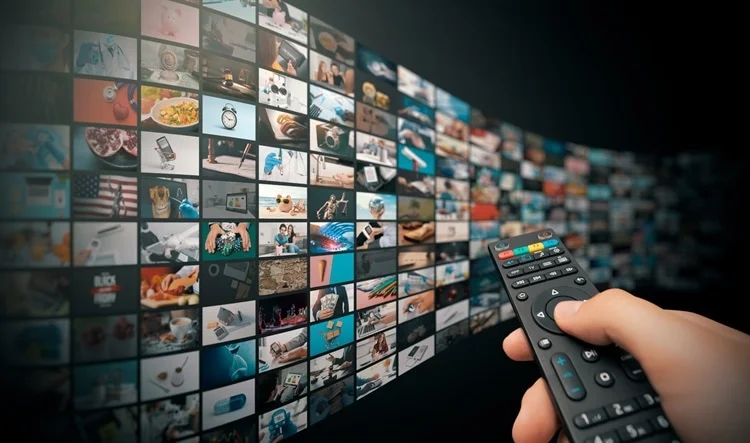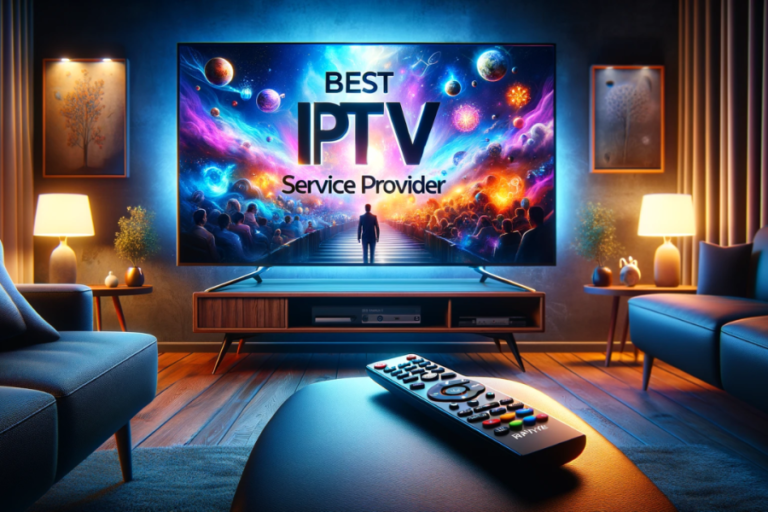Exploring IPTV: The Future Of Digital Entertainment
Introduction:
In the ever-evolving landscape of digital entertainment, Internet Protocol Television (IPTV) has emerged as a transformative technology, reshaping how we consume television and video content. Unlike traditional broadcast or cable TV, IPTV delivers television content over the internet, providing a range of benefits and a more flexible viewing experience. This article delves into the advantages of IPTV technology, compares it with traditional streaming services, and explores its role in advancing digital entertainment.
What is IPTV?
IPTV stands for Internet Protocol Television, a system that uses internet protocols to deliver television programming. Instead of receiving signals through satellite dishes or cable wires, IPTV uses the internet to stream content. This method allows users to watch TV shows, movies, and other content on various devices, including smartphones, tablets, smart TVs, and computers. The technology behind IPTV involves encoding video signals into digital packets, which are then transmitted over the internet and decoded by the user’s device.
Advantages of IPTV Technology:
1. Enhanced Flexibility and Convenience:
One of the most significant advantages of IPTV is its flexibility. Unlike traditional TV services, IPTV allows viewers to watch content on-demand. This means that users are no longer bound by rigid broadcast schedules and can access their favorite shows or movies whenever they choose. Additionally, IPTV services often offer a wide range of channels and content, including international programming and niche channels, catering to diverse viewer preferences.
2. Superior Picture Quality:
IPTV often provides higher picture and sound quality compared to traditional television services. With advancements in internet technology, IPTV can deliver high-definition (HD) and even ultra-high-definition (UHD) content. This superior quality enhances the viewing experience, making it more immersive and enjoyable.
3. Interactive Features:
IPTV platforms frequently offer interactive features that are not available with traditional TV services. These features can include video-on-demand (VoD), digital video recording (DVR), interactive TV guides, and the ability to pause, rewind, or fast-forward live TV. These capabilities enhance user control and provide a more personalized viewing experience.
4. Cost-Effectiveness:
In many cases, IPTV services can be more cost-effective than traditional cable or satellite TV. Many IPTV providers offer flexible subscription plans, allowing users to pay only for the channels and content they want. Additionally, the absence of expensive hardware installations and maintenance costs can further reduce overall expenses.
Comparing IPTV with Traditional Streaming Services:
While IPTV and streaming services share similarities, such as delivering content over the internet, they also have distinct differences. Traditional streaming services like Netflix, Hulu, and Amazon Prime Video operate on a subscription model, providing access to a vast library of on-demand content. These services often focus on delivering a rich catalog of movies, TV shows, and original programming.
In contrast, IPTV services often mimic traditional TV programming but deliver it through the internet. IPTV typically offers live TV channels, including news, sports, and entertainment channels, much like traditional cable TV. This makes IPTV a compelling option for viewers who prefer the structure of traditional TV programming combined with the flexibility of internet delivery.
Advancements in IPTV and Digital Entertainment:
1. Integration with Smart Technologies:
Recent advancements in IPTV technology include seamless integration with smart home devices and applications. Smart TVs, voice-controlled assistants, and home automation systems now work in harmony with IPTV services, offering enhanced convenience and control. Users can switch channels, search for content, and adjust settings using voice commands or smart remote controls.
2. Enhanced Personalization:
IPTV platforms are increasingly incorporating advanced algorithms and artificial intelligence (AI) to offer personalized content recommendations. By analyzing viewing habits and preferences, these systems can suggest shows and movies tailored to individual tastes, improving the overall user experience.
3. Cloud-Based Services:
Cloud technology has further advanced IPTV by enabling cloud-based DVR functionalities. This allows users to record and store TV shows and movies in the cloud, eliminating the need for physical storage devices. Cloud-based services also ensure that recorded content is accessible from any device, offering greater flexibility and convenience.
Conclusion:
IPTV represents a significant leap forward in digital entertainment, offering a range of benefits over traditional TV services. Its flexibility, superior picture quality, interactive features, and cost-effectiveness make it an attractive option for modern viewers. As technology continues to advance, IPTV is poised to become even more integrated with smart technologies and personalized experiences, shaping the future of how we consume television and video content. Whether you are a cord-cutter or simply looking to explore new viewing options, IPTV offers a compelling and innovative solution for today’s digital age.
Read next: Glamourheadline






